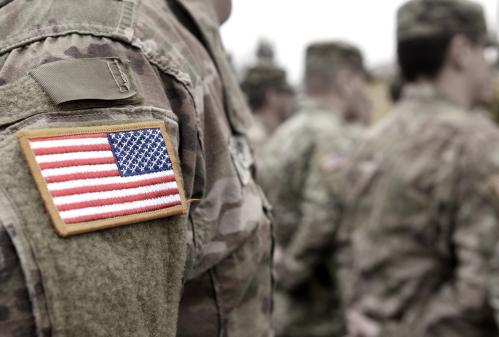Winning is not a singularly American concept, but from our sports teams to our military we expect a winner.
The Army Operational Concept
At the Association of the United States Army Symposium this week in Washington, D.C., U.S. Army Chief of Staff General Raymond Odierno unveiled the Army’s new concept for operating in our ever-changing world. This new Army Operational Concept (AOC) characterizes the environments of conflict for the future. It does not try to determine where our next fight will be, but instead anticipates the threats of the future operating environment and recaptures a term that has arguably been missing from our defense and security vernacular for the last several years–winning.
After 13 years of war, policymakers and military leaders alike have tread lightly on the concept of winning. Conflicts like Iraq and Afghanistan, and many of the conflicts that our nation will face in the future, are not and will not be contests of pure military might among nation-states. Rather than a series of force-on-force combat operations that result in enemy capitulation and eventually surrender, winning in the future environment will be much harder to qualify.
The Army is unique in its ability to deliver a powerful strategic message. While the appearance of a U.S. Navy carrier in troubled waters or U.S. Air Force combat patrols in contested airspace is meaningful and can have coercive effects, the AOC suggests that only “the arrival of Army forces demonstrates to partners and adversaries U.S. resolve and sustained commitment to achieving security objectives.” From the Normandy invasion to the Thunder Run for Baghdad, history demonstrates that only boots on the ground defeats our adversaries.
New Challenges And A New Concept of Winning
As the Army considers an environment that will present unique challenges, it must be prepared to prevent conflict, shape the security environment to facilitate national objectives and ultimately defeat adversaries across the full range of military operations. The Army Operating Concept will provide the roadmap for advancing technologies that ensure a comparative advantage–complementing the joint team, integrating special operations and focusing on the development of agile and adaptable leaders who can scope the problem and find a solution.
To achieve these objectives the AOC will focus on critical tenets and core competencies, from demonstrating simultaneity across the military domains to shaping the security environment with critical multinational and interagency partners. Innovation and adaptability become as important as lethality and mobility.
How will we define winning in the future security environment? Preventing conflict before it occurs, like bringing aid to those suffering from Ebola in West Africa, is winning. Shaping the security environment with regionally aligned and globally responsive forces, like an airborne infantry battalion in the Baltic states, is winning.
War is a contest of wills. America expects its military forces to win no matter what challenges lie in store. The AOC, by recognizing the demands of future armed conflict and underscoring the merits of leader development, ensures that the Army has the will to win in a complex world.
The Brookings Institution is committed to quality, independence, and impact.
We are supported by a diverse array of funders. In line with our values and policies, each Brookings publication represents the sole views of its author(s).



Commentary
Can the U.S. Army Win In A Complex World?
October 17, 2014